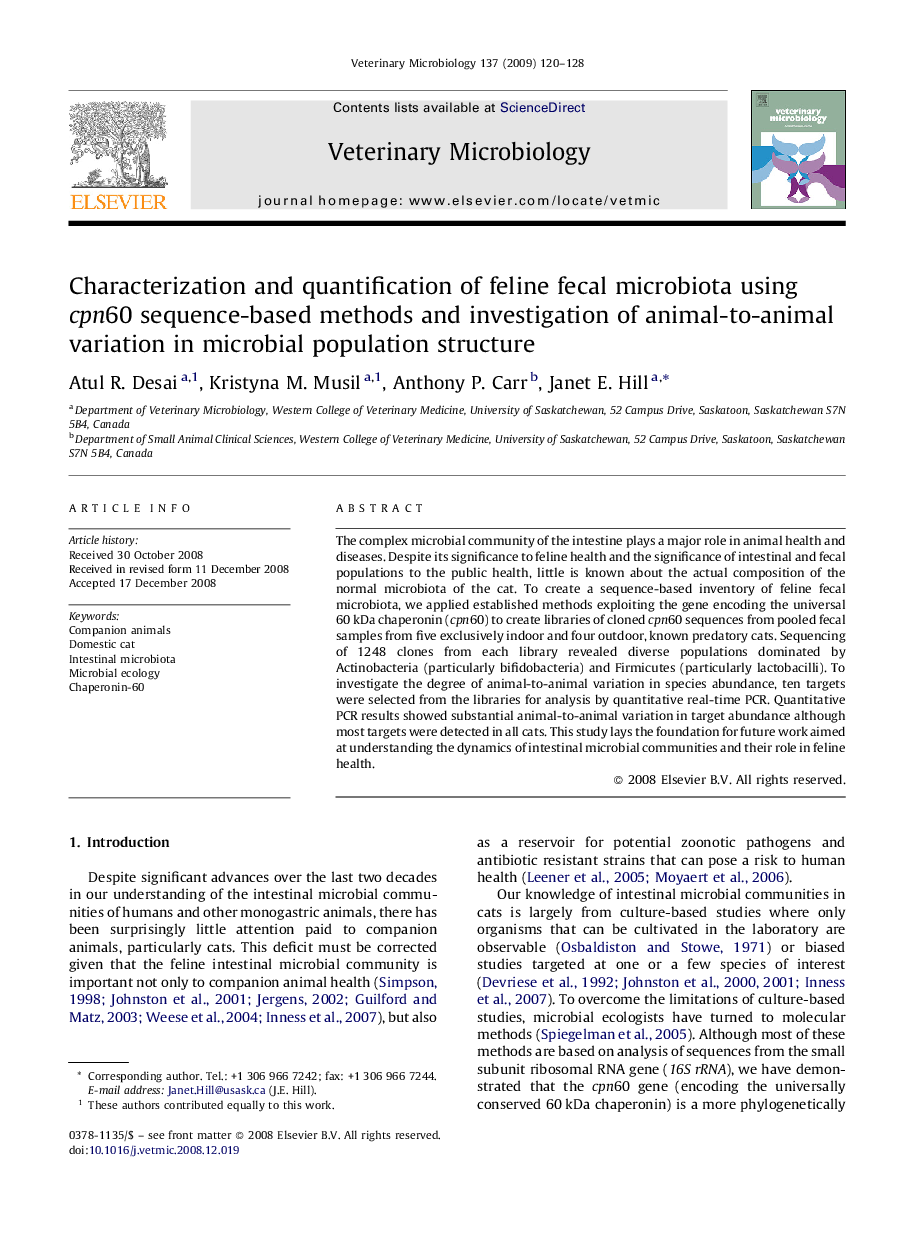| Article ID | Journal | Published Year | Pages | File Type |
|---|---|---|---|---|
| 2468500 | Veterinary Microbiology | 2009 | 9 Pages |
The complex microbial community of the intestine plays a major role in animal health and diseases. Despite its significance to feline health and the significance of intestinal and fecal populations to the public health, little is known about the actual composition of the normal microbiota of the cat. To create a sequence-based inventory of feline fecal microbiota, we applied established methods exploiting the gene encoding the universal 60 kDa chaperonin (cpn60) to create libraries of cloned cpn60 sequences from pooled fecal samples from five exclusively indoor and four outdoor, known predatory cats. Sequencing of 1248 clones from each library revealed diverse populations dominated by Actinobacteria (particularly bifidobacteria) and Firmicutes (particularly lactobacilli). To investigate the degree of animal-to-animal variation in species abundance, ten targets were selected from the libraries for analysis by quantitative real-time PCR. Quantitative PCR results showed substantial animal-to-animal variation in target abundance although most targets were detected in all cats. This study lays the foundation for future work aimed at understanding the dynamics of intestinal microbial communities and their role in feline health.
